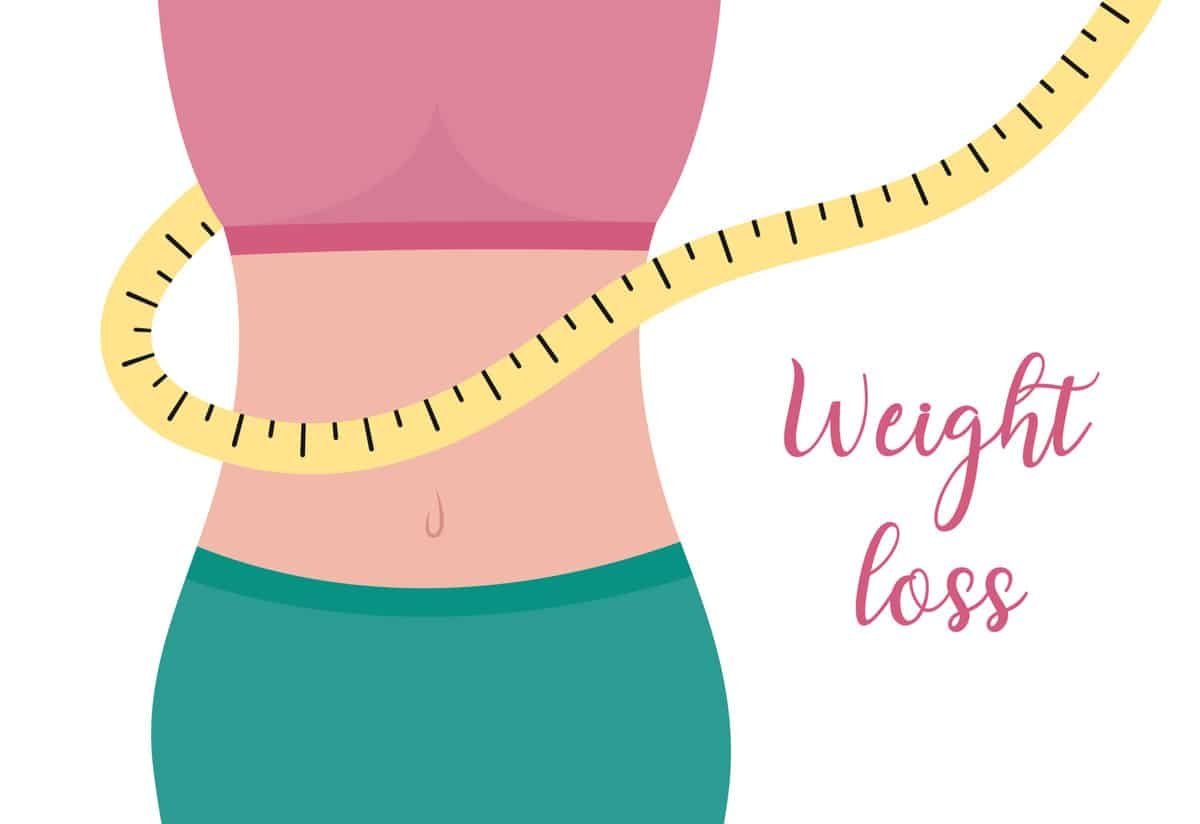Overview of Menstrual Cramps
Menstrual cramps, also known as dysmenorrhea, are painful sensations that many women feel in the lower abdomen before or during their menstrual cycle. These cramps occur as the uterus contracts to expel its lining, resulting in varying degrees of discomfort, from mild sensations to intense pain. Common symptoms include throbbing, aching, or sharp feelings, which may accompany bloating, headaches, or nausea. Understanding these cramps is essential as it helps highlight their effects on daily life and overall well-being.
The Benefits of Natural Remedies
Natural remedies for menstrual cramps have gained popularity among those seeking holistic pain management. Many women opt for alternatives to over-the-counter medications due to concerns about possible side effects or a preference for more organic solutions. Remedies such as herbal treatments, dietary adjustments, physical activities like yoga or stretching, and relaxation techniques can help alleviate discomfort. These approaches aim to relieve pain and promote overall health and balance within the body. Furthermore, using natural remedies allows women to take control of their menstrual health, fostering a deeper connection with their bodies and encouraging a proactive self-care approach.
In This Article
Understanding Menstrual Cramps
What Causes Menstrual Cramps?
Menstrual cramps, or dysmenorrhea, result from the contraction of the uterus. During menstruation, the body releases prostaglandins, hormone-like substances that cause the uterus muscles to contract. An increase in prostaglandin levels can result in more intense cramping. Other factors that can contribute to menstrual cramps include endometriosis, fibroids, and pelvic inflammatory disease, which can cause increased pain or discomfort during menstruation.
Symptoms and Duration
The symptoms of menstrual cramps typically include a throbbing or aching pain in the lower abdomen, which can radiate to the back and thighs. Some individuals may also experience nausea, vomiting, diarrhea, and headaches. The duration of menstrual cramps can vary; they often begin one to two days before menstruation starts and can last from a few hours to several days, usually subsiding as the period progresses. For some, cramps may be mild and manageable, while others may find them debilitating, requiring medical intervention or pain relief strategies.
Top Effective Natural Remedies
Natural remedies can be gentle yet powerful alternatives to traditional treatments for various health issues. Here’s an overview of some of the most effective options you can consider:
Herbal Teas
Herbal teas, made from various plant parts, are known for their healing benefits.
- Chamomile: This tea is famous for its calming properties. It can help ease anxiety and promote better sleep while having anti-inflammatory effects that support digestion.
- Ginger: Often used to soothe nausea and digestive discomfort, ginger tea can also alleviate cold and flu symptoms thanks to its anti-inflammatory and antioxidant qualities.
- Peppermint: This refreshing tea can help relieve digestive issues and headaches, making it an excellent choice for a quick afternoon boost.
Heat Therapy
Heat therapy involves using warmth to relieve pain and enhance circulation.
- Heating Pads: These are great for targeting specific areas of discomfort, like back pain or menstrual cramps, offering soothing relief.
- Warm Baths: Soaking in a warm bath can relax your muscles and improve blood circulation, making it an excellent way to unwind after a long day.
Essential Oils
Essential oils are concentrated extracts from plants that offer various therapeutic benefits.
- Lavender: Known for its calming effects, lavender oil can help reduce stress and improve sleep quality. It’s often used in aromatherapy to create a peaceful environment.
- Clary Sage: This oil can help ease menstrual discomfort and hormonal issues while uplifting your mood and reducing anxiety.
Dietary Adjustments
Adjusting your diet can significantly impact your health, especially in lowering inflammation and promoting overall wellness.
- Anti-inflammatory Foods: Adding foods like berries, fatty fish, nuts, and leafy greens can help fight inflammation in your body, potentially lowering the risk of chronic diseases and improving general health.
Acupuncture and Acupressure Techniques
Acupuncture and acupressure are traditional practices from Chinese medicine that stimulate specific body points to encourage healing.
- Acupuncture involves inserting thin needles at specific points to relieve pain, reduce stress, and improve well-being. It’s often used for managing chronic pain and enhancing sleep.
- Acupressure: Similar to acupuncture but without needles, acupressure uses pressure on specific points to relieve tension and improve energy flow. It’s a convenient self-care method that you can do anywhere.
Incorporating these natural remedies into your daily routine can help improve your overall well-being and relieve various ailments. However, always check with a healthcare professional before starting any new treatment, especially if you have existing health conditions or are on medication.
Lifestyle Changes to Alleviate Cramps
Regular Exercise
Regular physical activity can significantly reduce the frequency and intensity of cramps. Exercise helps improve blood circulation, which can alleviate muscle tension. Activities like walking, cycling, or swimming can keep your muscles flexible and fit, reducing the likelihood of cramps. Stretching exercises, in particular, are beneficial before and after workouts to prepare the muscles and promote recovery.
Stress Management Techniques (Yoga, Meditation)
Stress can contribute to muscle tension and increase the likelihood of cramps. Incorporating stress management techniques into your routine can help relax your mind and body. Yoga is a fantastic way to combine physical movement with mindfulness, helping to release tension and improve flexibility. Meditation can also reduce stress levels, allowing your body to relax, which may help prevent cramps from occurring.
Importance of Hydration
Staying well-hydrated is crucial for overall health and can play a significant role in preventing cramps. Dehydration can lead to muscle cramps as it affects electrolyte balance and muscle function. Drinking enough water throughout the day is essential, especially during exercise or in hot weather. Including electrolyte-rich beverages or foods can also help maintain proper hydration levels and support muscle function, reducing the risk of cramps.
When to Seek Medical Help
Recognizing when to seek medical help is essential for maintaining your health and overall well-being. Here’s a thorough look at the signs that indicate it’s time to consult a professional and some alternatives to consider regarding natural remedies.
Indicators That Suggest You Might Need Professional Guidance
- Persistent Symptoms: If you find yourself dealing with symptoms that linger longer than expected—like ongoing pain, fatigue, or unexplainable weight loss—it’s crucial to reach out to a healthcare provider. These could signal underlying health issues that need attention.
- Severe Discomfort: Don’t ignore symptoms that are intense or getting worse, such as severe headaches, chest pain, or trouble breathing. These are serious and might require immediate medical attention.
- Changes in Health Status: If you experience sudden changes in your health, like a rash, fever, or swelling, it could be a sign of an allergic reaction or an infection. In such cases, a professional evaluation is essential.
- Mental Health Concerns: If you’re feeling symptoms of anxiety, depression, or any other mental health issues that disrupt your daily life, seeking professional help is essential for getting the right diagnosis and treatment.
- Chronic Conditions: For those with chronic health conditions, it’s wise to check in with your healthcare provider if you notice changes in your symptoms or overall health. Regular consultations can help you manage these conditions effectively.
Alternatives to Natural Remedies
While natural remedies can be pretty helpful for minor issues, they may not always be enough for more serious health concerns. Here are some alternatives to keep in mind:
- Over-the-Counter MedicationsOver-the-counter medications
- Physical Therapy: If you’re dealing with injuries or chronic pain, physical therapy can be a fantastic alternative or supplement to natural remedies. A qualified therapist can design a personalized treatment plan to enhance mobility and lessen pain.
- Prescription Medications: When facing more severe health conditions, prescription medications might be necessary to manage symptoms or treat the root cause. Always consult a healthcare professional for advice on what medications are proper for you.
- Counselling or Therapy: For mental health challenges, professional counselling or therapy can provide invaluable support and strategies that natural remedies may not cover.
- Lifestyle Modifications: Sometimes, simply making improvements in your lifestyle—like adopting a healthier diet, getting more exercise, and managing stress—can have a substantial positive impact on your overall health, potentially reducing the need for any remedies, natural or medicinal.
In conclusion, knowing when to seek medical help and understanding the alternatives to natural remedies can empower you to make informed choices about your health. Always prioritize your well-being, and don’t hesitate to consult professionals if you’re uncertain. Your health is worth it!
Conclusion
In this section, we wrap up our discussion on natural remedies by highlighting the key takeaways. It’s essential to highlight the options available for anyone seeking alternative relief. By revisiting these remedies, we reinforce their potential benefits and encourage readers to consider how they might work for them. We also want to inspire you to explore different approaches, as everyone’s response to these remedies can be unique. Trying out various methods can lead to discovering what truly resonates with you, ultimately promoting a more personalized path to health and wellness.
Call to Action
We’d love to hear from you! In this space, we invite you to share your experiences or remedies in the comments section. This fosters a sense of community and allows us to learn from one another. Encouraging interaction enriches our discussion and opens the door for you to contribute valuable insights, tips, and personal stories related to natural remedies. Together, we can create a supportive environment where everyone feels empowered to explore and share their holistic approaches to health.
Frequently Asked Questions (FAQs)
What are natural remedies?
Natural remedies are natural treatments, including plants, herbs, and minerals. They aim to relieve various health issues without relying on synthetic medications, offering a more organic approach to wellness.
Are natural remedies safe for everyone?
While many natural remedies are generally safe, people can react differently. Chatting with a healthcare professional before trying something new is always a good idea, especially if you have existing health conditions or are pregnant or nursing.
How can I determine which natural remedy is correct for me?
Finding the proper natural remedy involves considering your specific health needs, conditions, and what you feel comfortable with. Consulting with a healthcare provider or herbalist can provide valuable guidance in making your choice.
Can natural remedies interact with prescription medications?
Absolutely. Some natural remedies may interact with prescription medications, potentially increasing side effects or diminishing their effectiveness. Always keep your healthcare provider in the loop about any natural remedies you use.
What is the typical time frame for noticing results from natural remedies?
The time it takes to notice results can vary widely based on the remedy, the individual, and the health condition being addressed. Some people might experience benefits in a few days, while others may take weeks or longer.
What are some expected natural remedies for headaches?
Popular natural remedies for headaches include essential oils, like peppermint or lavender, soothing herbal teas, such as ginger or chamomile, and simply making sure you stay well-hydrated.
Are there any side effects associated with natural remedies?
Many natural remedies are considered safe, but some can cause side effects, especially if taken in large amounts. Sticking to recommended dosages and guidelines is always wise to avoid any issues.
How do I know if a natural remedy is effective?
To assess the effectiveness of a natural remedy, keep track of your symptoms before, during, and after using it. A journal can be a helpful tool for noting any changes and discussing them with a healthcare professional.
Can natural remedies prevent illness?
Specific natural remedies, like maintaining a well-balanced diet rich in vitamins and minerals, can bolster overall health and potentially help prevent illness. However, they shouldn’t be seen as replacements for conventional medical treatments.
What are some effective natural remedies for stress relief?
Some great natural remedies for stress relief include practices like yoga and meditation, herbal teas such as chamomile or valerian root, and the calming effects of aromatherapy with essential oils.
Is there scientific research supporting natural remedies?
Many natural remedies have been explored in scientific studies, yielding various results. Some boast solid evidence for their effectiveness, while others might need more research to confirm their benefits.
How can I incorporate natural remedies into my daily routine?
Incorporating natural remedies into your daily life can be as simple as gradually adding them to your meals, practising mindfulness techniques, and exploring holistic health approaches through lifestyle changes. It’s all about discovering what works best for you!

Mariyam
Dr. Mariyam Hamdan is a highly skilled gynecologist specializing in women's health. With a medical degree from American University Sharjah, United Arab Emirates, she offers expert care in preventive services, reproductive health, pregnancy management, and menopausal support. Dr. Mariyam is dedicated to providing personalized, patient-centered care, and is committed to educating and empowering women to take charge of their health.







